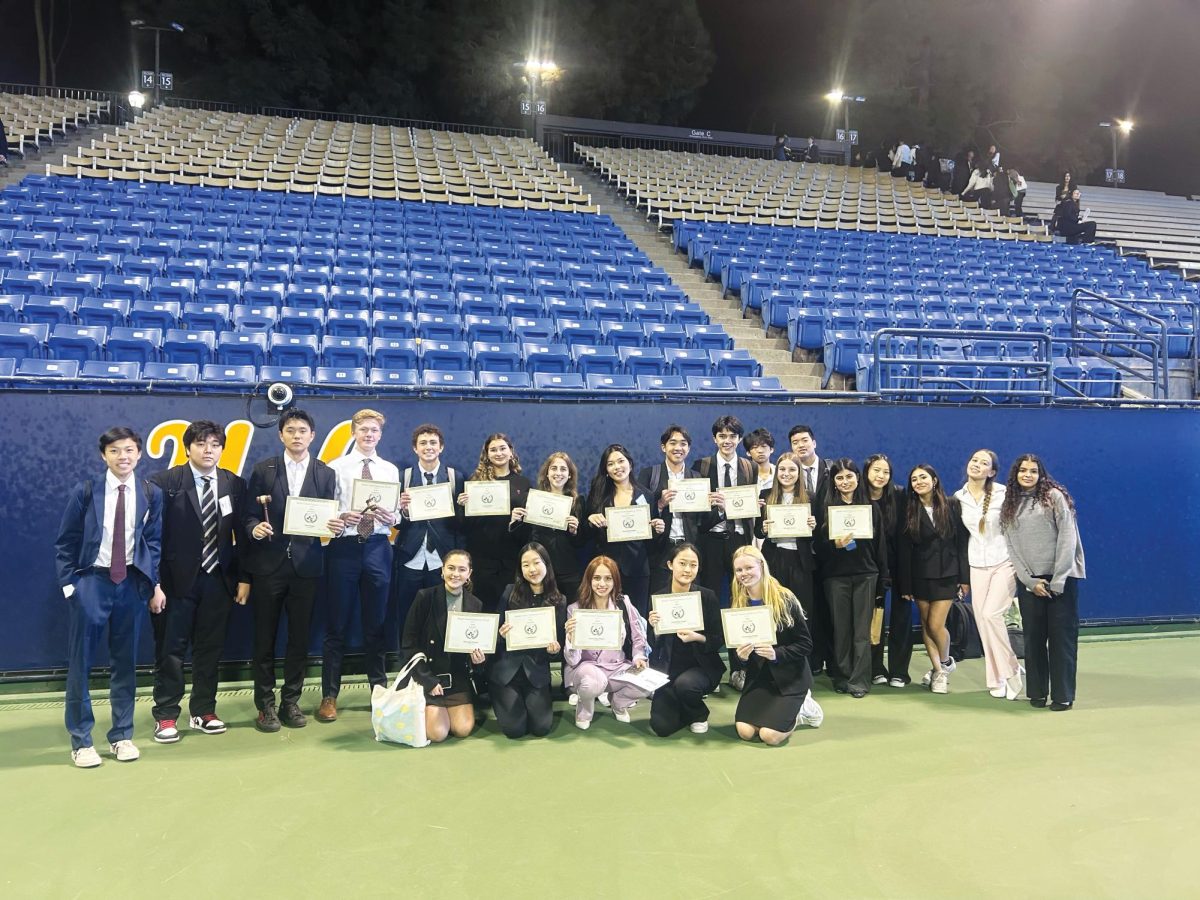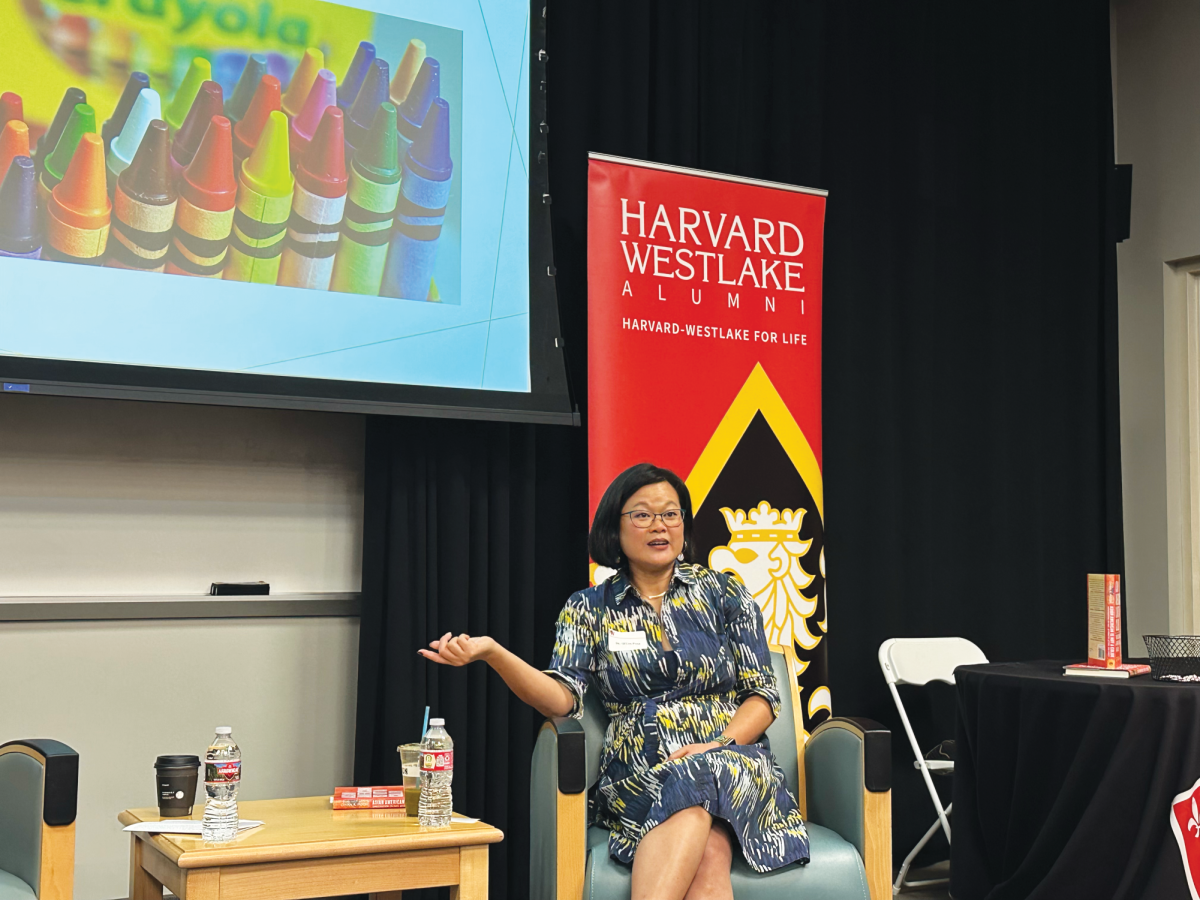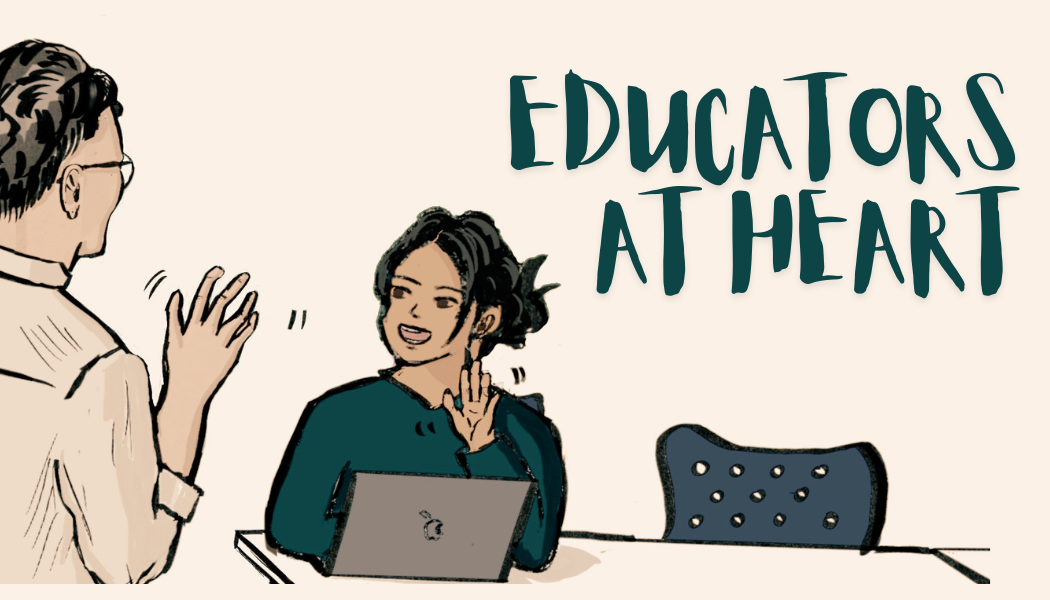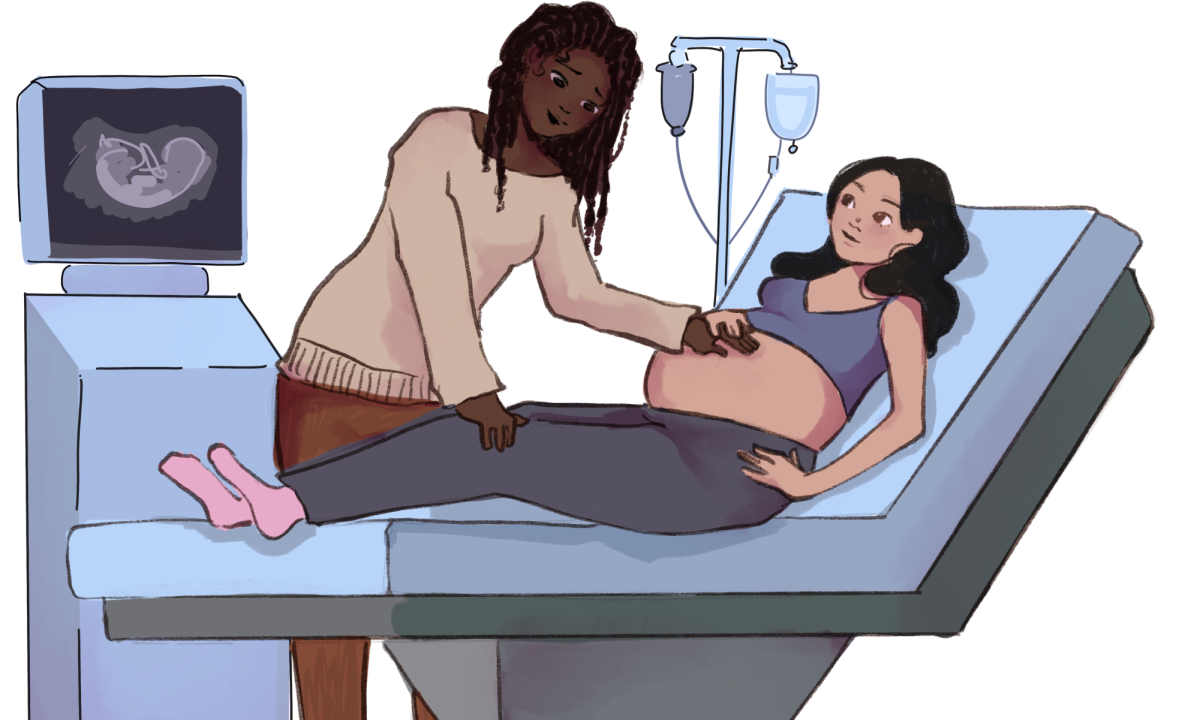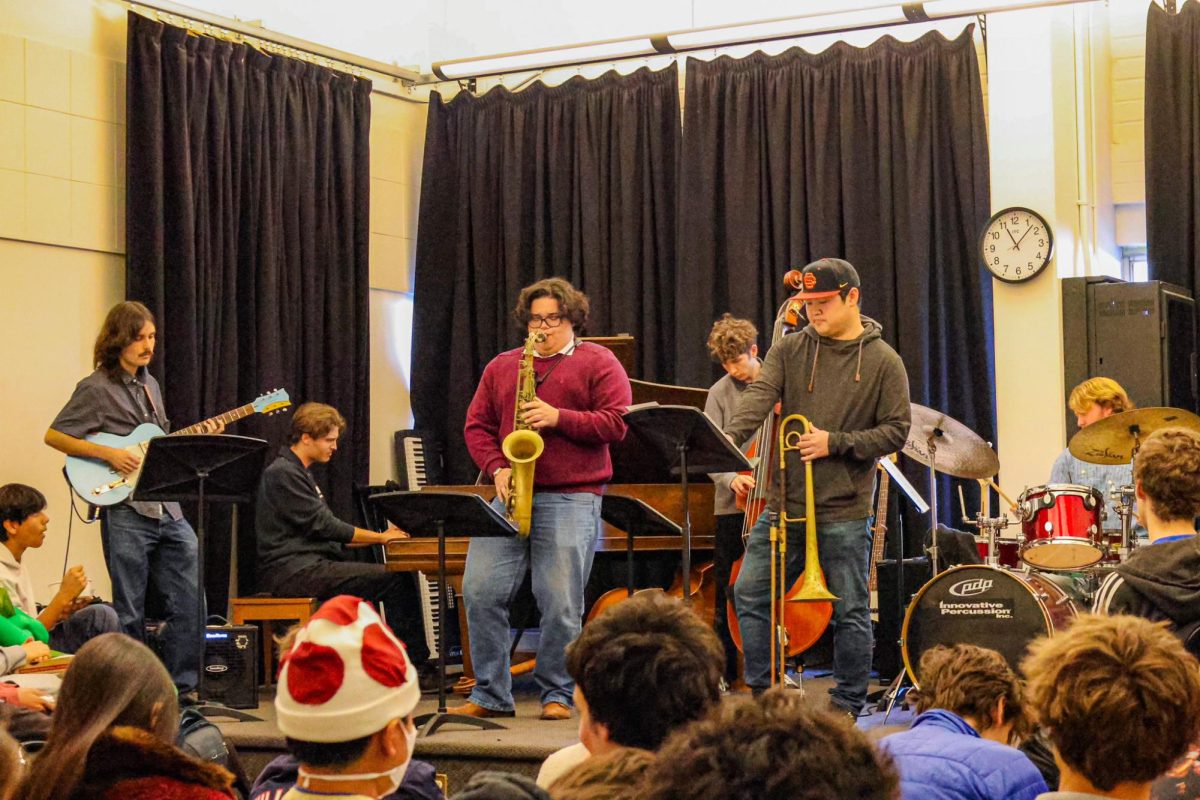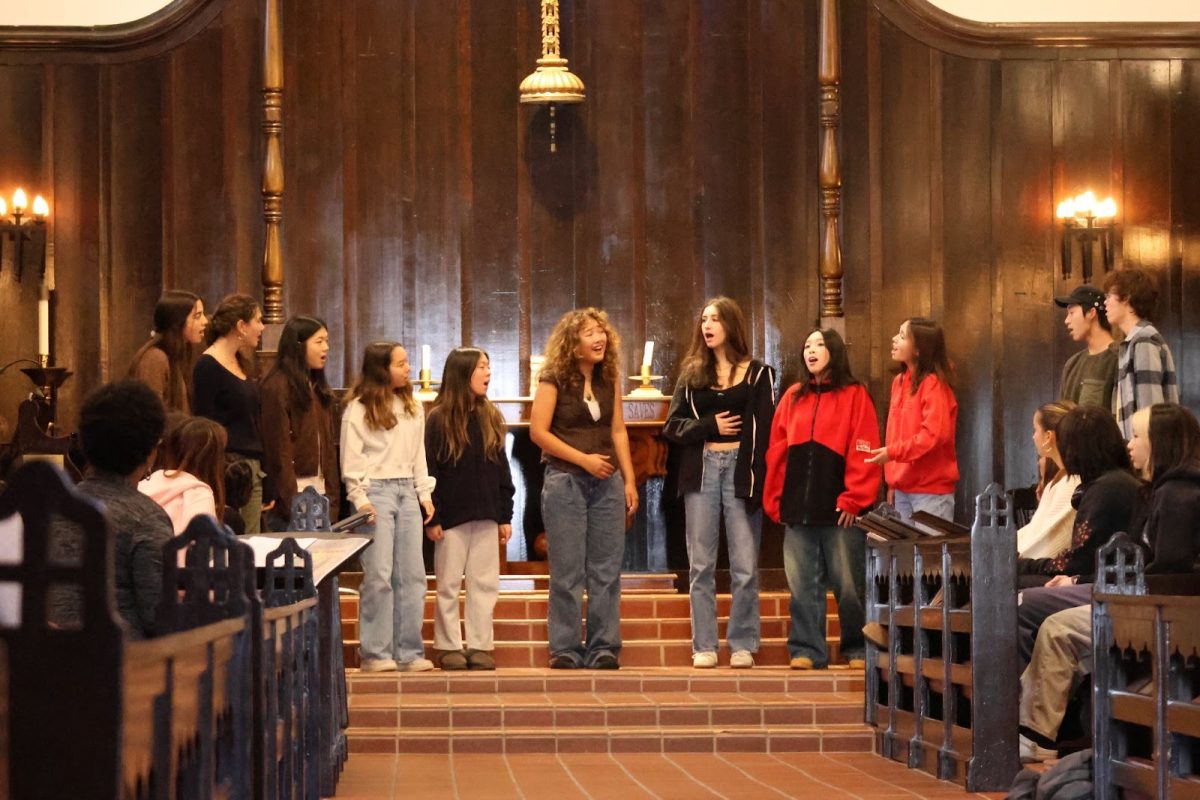Â
By Matthew Lee
lice Newman â11 had been spending time with her campers the whole day. They had just played an exciting soccer match and were chanting and singing with each other happily. Newman was delighted to see them playing with so much energy and reacting to her so positively, yet she noticed that one of her campers seemed to not enjoy the activities and was remaining quiet and aloof from the others.
Later in the day, Newman was walking alone with a six-year-old girl named Emily, leading her to the next camp activity. Newman wanted her to open up to her and come out of her shyness.
“Emily, weâre going to arts and crafts now. What are your favorite things to draw?”
Silence.
“Youâre probably hungry, arenât you? Donât worry weâll go to lunch after arts and crafts. That soccer game really wore me out, Are you tired too?”
Silence.
Newman continued to attempt to get the child to talk more and feel comfortable with her, but Emily still did not speak much.
Then, as Newman was beginning to think that Emily just was not enjoying the camp, the little girl said in a quiet, shy voice of a six year old, “I love you.”
This scene from Camp Harmony illustrates the intimate bond that campers and counselors share with each other.
For about 25 years, Harvard-Westlake students have been volunteering as counselors for Camp Harmony, which provides homeless and impoverished children with an overnight camp experience.
Camp Harmony takes place at Camp Hess Kramer in Malibu and at Gindling Hilltop in Malibu, and runs events throughout the year.
“The main goal of the camps is to provide impoverished kids who could not otherwise afford to attend camp with the traditional camp experience,” said Jason Macabee â10.
There is a summer camp every year that lasts one week at the end of August, and there is a winter camp that takes place during Presidents day weekend. The counselors stay with the campers in cabins throughout the camps.
“Living with the campers in the cabins is the best part of Camp Harmony because this is the time when you really get to know the kids,” Henry Braun â11 said.
Harvard-Westlake students can become counselors after they have completed ninth grade. They must apply to become a counselor by filling out application forms and completing a group interview with Camp Harmony board members.
“The group interview was kind of scary at first, but all the interviewers knew my sister who had done Camp Harmony before so eventually I began to feel more comfortable. They called me baby Kellman,” Eliza Kellman â12 said.
Camp Harmony counselors also include high school students from other Los Angeles schools such as Brentwood, Crossroads, Windward, and Calabasas high school.
“Some of my closest friends from out of school are friends that I met at Camp Harmony,” Newman said.
Camp Harmony attracts its campers by keeping in contact with directors of charities and homeless organizations around Southern California. The board members of Camp Harmony inform these directors about the camp, and the directors send several of the young children that are beneficiaries of their organizations.
When the campers first arrive, there are counselors waiting to welcome them and lead them to their assigned cabins. Each cabin has eight campers and three counselors who are responsible for the eight campers in the cabin.
Basic necessities such as toothbrushes and blankets are provided to the camp by donors. The counselorsâ first responsibility is to hand out these necessities to the campers. Throughout the weeklong camp, the counselors must lead the campers to activities and make sure that the campers eat and bathe. There is also tedious work involved for the counselors. Braun said that the younger kids often urinate in their beds, and the counselors have to clean up the messes.
“Sometimes it can get really difficult to control the younger campers, but interacting with them is always fun. You have to be fun with them but also know when to assert your authority,” Braun said.
The activities that occur throughout the camp consist of hiking, sports, arts and crafts, going to the beach, swimming, and ropes course.
For many of the campers who attend the camp in Malibu, it is their first time ever seeing the beach although they live in southern California.
“Itâs so interesting to see the campersâ reactions to seeing the beach for the first time. It makes me realize how much we take some things for granted,” Newman said.
In addition to the summer and winter camps, Camp Harmony also runs Leadership and Mentoring programs that run throughout the year.
In the Leadership program, high school student act as counselors to children ages six to ten and accompany them on weekend trips to places such as the aquarium or the zoo. Volunteers work with kids ages 12 to 14 in the Mentoring program, and the emphasis is on creating individual bonds between the high school volunteers and the kids.
“Basically what we do is set up events every month that allow the kids to be kids. We take them out to fun places like the zoo and Dodger stadium,” said Macabee, a Mentoring leader.
Nick Melvoin â04 first became involved with Camp Harmony when he was a sophomore, and has been involved ever since. He is now the programming director of the camp advisory board and helps to coordinate the high school volunteers.
Melvoin said that the close-knit community at Camp Harmony that he has become part of is what keeps him willing to volunteer every year.
Melvoin has noticed changes at Camp Harmony since he first began. The percentage of Harvard-Westlake student volunteers has decreased because the camp has been trying to diversify the counselor base in the past five years. He also said that the camp has expanded remarkably in terms of the number of campers and counselors.
Not only do the campers benefit, but so do the counselors, said Melvoin.
“Camp Harmony is really unique because we take high school students and really to try mentor them as they become more mature and must take up more responsibilities,” Melvoin said.

